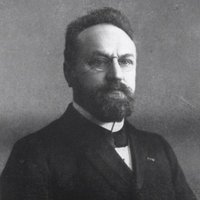
Herman Bavinck
@herman__bavinck
bavinck.org
Professor of Theology at the Free University in Amsterdam, Reformed theologian, churchman, disciple of Christ (1854-1921)
ID: 1654100328
07-08-2013 23:46:20
1,1K Tweet
7,7K Followers
13 Following





















@herman__bavinck
bavinck.org
Professor of Theology at the Free University in Amsterdam, Reformed theologian, churchman, disciple of Christ (1854-1921)
ID: 1654100328
07-08-2013 23:46:20
1,1K Tweet
7,7K Followers
13 Following



















